Refine search
Actions for selected content:
3387661 results
On K-stability of blow-ups of weighted projective planes
- Part of
-
- Journal:
- Proceedings of the Royal Society of Edinburgh. Section A: Mathematics , First View
- Published online by Cambridge University Press:
- 29 August 2025, pp. 1-17
-
- Article
- Export citation
Against Epistemic Harm
-
- Journal:
- Episteme , First View
- Published online by Cambridge University Press:
- 29 August 2025, pp. 1-21
-
- Article
-
- You have access
- Open access
- HTML
- Export citation
The algebraic structure of Dyson–Schwinger equations with multiple insertion places
- Part of
-
- Journal:
- Canadian Mathematical Communications / Volume 1 / 2025
- Published online by Cambridge University Press:
- 29 August 2025, e2
-
- Article
-
- You have access
- Open access
- HTML
- Export citation
Partition, Passport and the Documentary Life of Belonging
-
- Journal:
- Critical Pakistan Studies ,
- Published online by Cambridge University Press:
- 29 August 2025, pp. 1-14
-
- Article
-
- You have access
- Open access
- HTML
- Export citation
Negative ties highlight hidden extremes in social media polarization
- Part of
-
- Journal:
- Network Science / Volume 13 / 2025
- Published online by Cambridge University Press:
- 29 August 2025, e10
-
- Article
-
- You have access
- Open access
- HTML
- Export citation
Politics and algorithmic articulation of law: tracing the discrepancies and backstage decision-making in the development of the profiling algorithm in Polish labour market policies
-
- Journal:
- International Journal of Law in Context , First View
- Published online by Cambridge University Press:
- 29 August 2025, pp. 1-20
-
- Article
-
- You have access
- Open access
- HTML
- Export citation
Diverse mineral assemblages of primary Be minerals from pegmatites of the Třebíč Pluton, Moldanubian Zone, Czech Republic; an effect of early tourmaline crystallisation
-
- Journal:
- Mineralogical Magazine / Accepted manuscript
- Published online by Cambridge University Press:
- 29 August 2025, pp. 1-34
-
- Article
-
- You have access
- Export citation
Between State Control and Banking Power: Spanish Banking Supervision Under Franco (1940–1975)
-
- Journal:
- Enterprise & Society , First View
- Published online by Cambridge University Press:
- 29 August 2025, pp. 1-25
-
- Article
-
- You have access
- Open access
- HTML
- Export citation
Velocity crisis of a bio-inspired self-propelled hyperelastic foil in pitching motion
-
- Journal:
- Journal of Fluid Mechanics / Volume 1018 / 10 September 2025
- Published online by Cambridge University Press:
- 29 August 2025, A8
-
- Article
-
- You have access
- Open access
- HTML
- Export citation
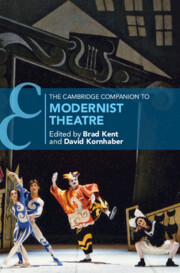
The Cambridge Companion to Modernist Theatre
-
- Published online:
- 28 August 2025
- Print publication:
- 11 September 2025

The Nation at Sea
- The Federal Courts and American Sovereignty, 1789–1825
-
- Published online:
- 28 August 2025
- Print publication:
- 11 September 2025

Diodoros of Sicily: Bibliotheke Historike
- Books 21-40: From the Battle of Ipsos (301 BC) to the Catilinarian Conspiracy (62 BC)
-
- Published online:
- 28 August 2025
- Print publication:
- 18 September 2025

Abu Dhabi, the United Arab Emirates and the Gulf Region
- Fifty Years of Transformation
-
- Published by:
- Gerlach Books
- Published online:
- 28 August 2025
- Print publication:
- 31 October 2016
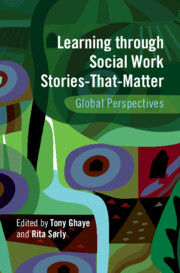
Learning through Social Work Stories-That-Matter
- Global Perspectives
-
- Published online:
- 28 August 2025
- Print publication:
- 11 September 2025
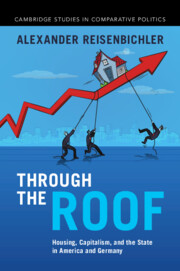
Through the Roof
- Housing, Capitalism, and the State in America and Germany
-
- Published online:
- 28 August 2025
- Print publication:
- 11 September 2025

Iran's Relations with the Arab States of the Gulf
- Common Interests over Historic Rivalry
-
- Published by:
- Gerlach Books
- Published online:
- 28 August 2025
- Print publication:
- 30 September 2016
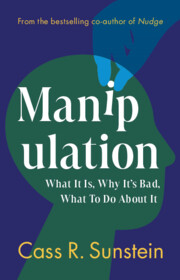
Manipulation
- What It Is, Why It's Bad, What to Do About It
-
- Published online:
- 28 August 2025
- Print publication:
- 28 August 2025
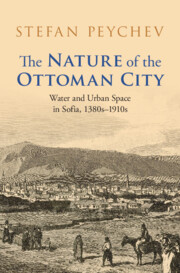
The Nature of the Ottoman City
- Water and Urban Space in Sofia, 1380s–1910s
-
- Published online:
- 28 August 2025
- Print publication:
- 11 September 2025

Science and Technology Development in the Gulf States
- Economic Diversification through Regional Collaboration
-
- Published by:
- Gerlach Books
- Published online:
- 28 August 2025
- Print publication:
- 30 September 2016

Strategies of Knowledge Transfer for Economic Diversification in the Arab States of the Gulf
-
- Published by:
- Gerlach Books
- Published online:
- 28 August 2025
- Print publication:
- 30 September 2017


